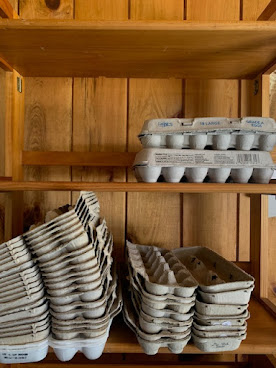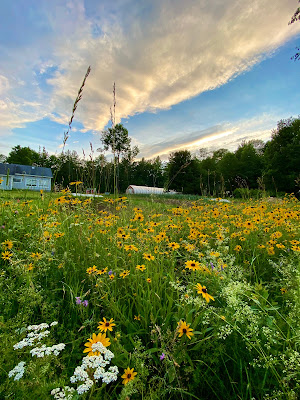Garden Upkeep 101
If you haven’t read our recent gardening post, it is titled “Starting your own Garden,” we recommend that you use it as reference for this blog post! This post builds on “Starting your own Garden” and it is meant to inform the maintenance and success of your plot.
Check seed packets of plants to see the frequency of watering and how much water various plants need. The frequency and amount of water also depends on the weather. Prolonged stretches of warm any sunny weather will create dry soils so watering should be more frequent. It is best to water your garden in the morning before temperatures become too warm. Also, it is always helpful to mix in some organic liquid fertilizer into your water. At CCF we use fish emulsion. In warmer/sunnier weather, the frequency of watering will increase. Seeds rely on moist soil for even germination and early growth. However, be careful, if the soil is too wet your seedlings might rot.
Weeding
While no one enjoys weeding, it is crucial for allowing your garden to grow to its maximum potential! So get in there and start plucking out the smallest and largest of weeds that could impede your plants’ growth. We recommend doing this about once a week, but the frequency also depends on the time of season and the size of your plot. Spring and early summer (when your plants are smaller) weeding is most crucial as the seedlings don't like the competition of weeds. If you have a larger garden (or multiple gardens) you'll find yourself spending more time weeding. As far as useful weeding tools, a potato hooks is a great for weeding in between your garden rows. You can also take the mechanical approach and weed between rows using a cultivator or a small roto-tiller.
‘Special' Treatment
“Special Treatment” refers to any extra care that should be given to your plants at this time. For instance, for Basil Plants you must pluck their seed buds off so that they can continue to fill out horizontally rather than vertically. Tomatoes and peas need to be trellised to allow for vertical growth. Also, trellising will keep the fruit off the ground helping to prevent rot and insect infestations.
As this spring has proven to be true, the weather in the Northeast can be unreliable and unpredictable. This means that you have to be ready for really hot weather, really cold temperatures, rain, wind and maybe even snow!
We recommend investing in row covers, or using a sheet to protect from the cold and wind. As mentioned earlier, you'll also need to water more frequently during hot sunny periods. It's good to watch the weather so that you can schedule when you need to do some extra watering of your plants or when you need to cover your plot with a sheet to protect them from cold evenings.
Bugs
Bugs seem to always be a nuisance, especially here at CCF. Specifically, Japanese Beetles are very prevalent in our gardens and since we are ‘organic’ it means that we are unable to do anything directly to the plants except for plucking bugs off plants by hand. However, this practice does not take too much time and makes a huge difference to the livelihood of your plants. Cutworms have also been an issue in the past. These worms come out at night and will "cut" off young seedlings such as onions and peas at soil level. The most reliable way of battling these insects is by digging in the soil around your cut-off plants, finding the curled up worms then smashing them.
Transplanting (when necessary)
Sometimes plants grow to the point where they need to be moved because they’re taking up too much space in their spot in the garden. This means that we have to carefully scoop around the root system of plants and place them into larger spaces where they can continue to flourish and grow larger over time.
Patience is a virtue
While gardening can seem slow or tireless at times, it can also be rewarding and meditative. Overall, its best to do your research, give your plants as much attention as you can and allow nature to take its course. With experience you may find gardening to be a lifelong hobby that you can share with friends and family! Again, if you have any questions about your crops feel free to send us an email.
Potted plants!
WateringCheck seed packets of plants to see the frequency of watering and how much water various plants need. The frequency and amount of water also depends on the weather. Prolonged stretches of warm any sunny weather will create dry soils so watering should be more frequent. It is best to water your garden in the morning before temperatures become too warm. Also, it is always helpful to mix in some organic liquid fertilizer into your water. At CCF we use fish emulsion. In warmer/sunnier weather, the frequency of watering will increase. Seeds rely on moist soil for even germination and early growth. However, be careful, if the soil is too wet your seedlings might rot.
Weeding
While no one enjoys weeding, it is crucial for allowing your garden to grow to its maximum potential! So get in there and start plucking out the smallest and largest of weeds that could impede your plants’ growth. We recommend doing this about once a week, but the frequency also depends on the time of season and the size of your plot. Spring and early summer (when your plants are smaller) weeding is most crucial as the seedlings don't like the competition of weeds. If you have a larger garden (or multiple gardens) you'll find yourself spending more time weeding. As far as useful weeding tools, a potato hooks is a great for weeding in between your garden rows. You can also take the mechanical approach and weed between rows using a cultivator or a small roto-tiller.
‘Special' Treatment
“Special Treatment” refers to any extra care that should be given to your plants at this time. For instance, for Basil Plants you must pluck their seed buds off so that they can continue to fill out horizontally rather than vertically. Tomatoes and peas need to be trellised to allow for vertical growth. Also, trellising will keep the fruit off the ground helping to prevent rot and insect infestations.
A gentle watering hose for amateur tomato plants
WeatherAs this spring has proven to be true, the weather in the Northeast can be unreliable and unpredictable. This means that you have to be ready for really hot weather, really cold temperatures, rain, wind and maybe even snow!
We recommend investing in row covers, or using a sheet to protect from the cold and wind. As mentioned earlier, you'll also need to water more frequently during hot sunny periods. It's good to watch the weather so that you can schedule when you need to do some extra watering of your plants or when you need to cover your plot with a sheet to protect them from cold evenings.
Bugs
Bugs seem to always be a nuisance, especially here at CCF. Specifically, Japanese Beetles are very prevalent in our gardens and since we are ‘organic’ it means that we are unable to do anything directly to the plants except for plucking bugs off plants by hand. However, this practice does not take too much time and makes a huge difference to the livelihood of your plants. Cutworms have also been an issue in the past. These worms come out at night and will "cut" off young seedlings such as onions and peas at soil level. The most reliable way of battling these insects is by digging in the soil around your cut-off plants, finding the curled up worms then smashing them.
Transplanting (when necessary)
Sometimes plants grow to the point where they need to be moved because they’re taking up too much space in their spot in the garden. This means that we have to carefully scoop around the root system of plants and place them into larger spaces where they can continue to flourish and grow larger over time.
Patience is a virtue
While gardening can seem slow or tireless at times, it can also be rewarding and meditative. Overall, its best to do your research, give your plants as much attention as you can and allow nature to take its course. With experience you may find gardening to be a lifelong hobby that you can share with friends and family! Again, if you have any questions about your crops feel free to send us an email.
Good luck and be patient!!





Comments
Post a Comment